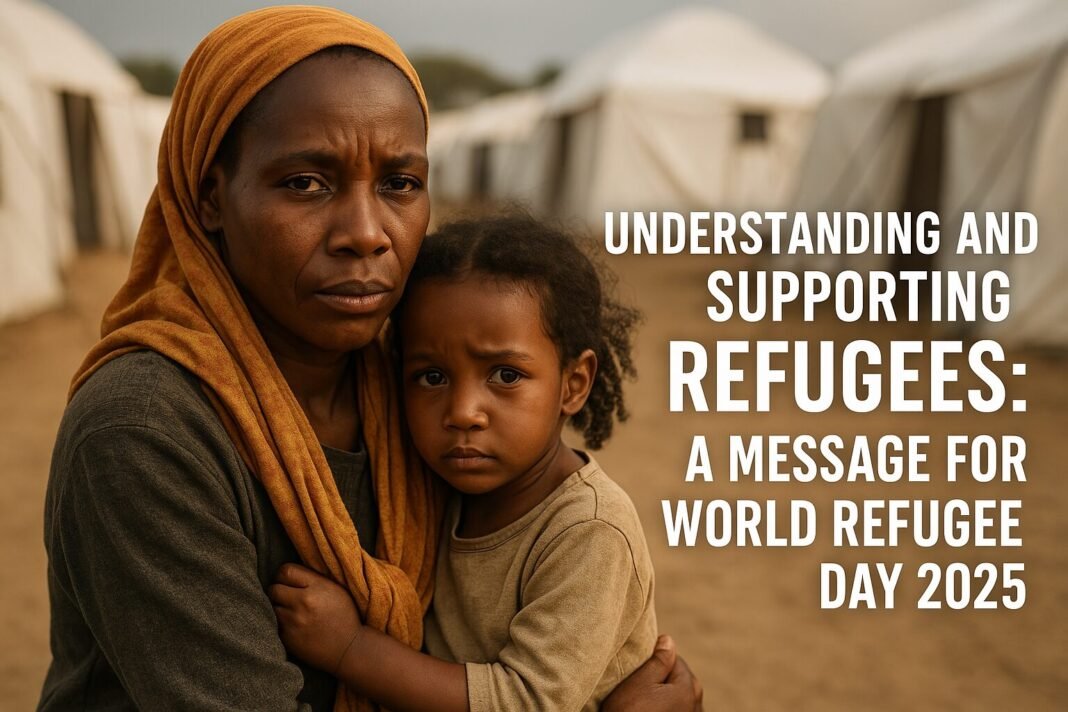Understanding the Refugee Crisis
The refugee crisis remains one of the most pressing global issues of our time, affecting millions around the world. As of recent estimates, over 26 million refugees have been forcibly displaced due to various factors, ranging from armed conflict to persecution and natural disasters. Understanding the intricacies of these multiple causes is crucial to grasping the extent and nature of global displacement.
One of the primary reasons individuals and families are compelled to flee their homes is armed conflict. Nations beset by violence, such as Syria, Afghanistan, and South Sudan, have witnessed an alarming increase in the number of people seeking refuge. These individuals often leave behind not only their homes but also their livelihoods, facing dire situations as they navigate treacherous journeys to safety. The consequences of such conflicts are not limited to immediate physical danger; they also profoundly affect communities and contribute to long-term instability.
Persecution based on ethnicity, religion, political beliefs, or sexual orientation also drives many to seek asylum in more hospitable countries. The plight of the Rohingya in Myanmar and the Uighurs in China serves as stark reminders of how systemic discrimination can force entire populations into exile. These marginalized groups, often lacking basic human rights protections in their countries of origin, find themselves at heightened risk of violence and exploitation while seeking safety elsewhere.
Additionally, natural disasters and climate change are becoming increasingly significant contributors to forced displacement. Events such as hurricanes, floods, and droughts displace communities, adding another layer to the refugee crisis. The impact of climate change can exacerbate existing vulnerabilities, making populations more susceptible to livelihoods that are already strained by other conflicts or economic hardships.
The refugee experience is not monolithic; it varies widely based on factors such as socio-economic background, gender, and cultural context. Thus, acknowledging the diversity of these experiences is crucial for fostering empathy and understanding in a global society that often views refugees through a homogeneous lens. As we reflect on these complexities, it is essential to emphasize the urgent need for solidarity and coordinated action to address the ongoing challenges faced by displaced populations worldwide.
The Burden on Host Communities
Communities that receive refugees often face considerable challenges, particularly in developing countries where resources may already be limited. The influx of displaced individuals can create a strain on essential services such as healthcare, education, and housing. This strain can lead to resource scarcity, as host communities grapple with a sudden increase in demand on public facilities and social services which are often ill-equipped to handle such a surge. Consequently, long-established residents may face difficulties in accessing necessary services, exacerbating feelings of frustration and tension.
In many cases, the arrival of refugees may also heighten social tensions within host communities. Displaced groups may come from different cultural backgrounds, languages, and customs, which can create misunderstandings and even conflict. This sometimes leads to divisions within communities that were previously cohesive. The challenges associated with integration, alongside existing economic hardships, can prompt resentment and opposition to the presence of refugees. Addressing these tensions is critical, as communities are more likely to support refugees when they perceive a shared commitment to equitable resource distribution and integration initiatives.
Despite these challenges, host communities play an essential role in supporting refugees. They often step in to provide immediate assistance such as food, shelter, and social support to those fleeing conflict or disaster. Local organizations, civil society groups, and residents contribute significantly to the humanitarian efforts, demonstrating resilience and compassion in the face of adversity. However, the necessity for international assistance cannot be overstated. To ease the burden on host communities and ensure that both refugees and locals can thrive, significant investment in infrastructure, resources, and support programs is required. By strengthening host communities, the international community can foster an environment where both refugees and local residents can coexist harmoniously and sustainably.
The Strength and Contributions of Refugees
Refugees often embody incredible resilience, navigating challenges that can seem insurmountable. Their journeys are filled with hardship, yet many emerge with remarkable strength, ready to integrate into new societies. The capacity of refugees to not only adapt but to thrive in unfamiliar environments highlights their potential contributions to their host communities. Numerous inspiring stories illustrate the tenacity of individuals who, despite facing trauma and uncertainty, have successfully rebuilt their lives and, in doing so, enriched the cultural and economic fabric of their new homes.
Take, for instance, the story of a refugee who fled conflict and, after arriving in a new country, decided to open a small business. This individual not only found personal success but also created job opportunities for local residents, proving that refugees can be a substantial driving force in local economies. Their entrepreneurial spirit often fosters innovation and stimulates economic growth, which benefits everyone in the community. Moreover, the diverse backgrounds and experiences brought by refugees can lead to the introduction of new ideas and practices that enhance cultural diversity, making communities more vibrant and dynamic.
In addition to economic contributions, refugees also play a crucial role in fostering social connections and building bridges between different cultures. They share their traditions, foods, and languages, contributing to a rich tapestry of cultural exchange. Many communities have witnessed a blossoming of multicultural events and festivals, which not only celebrate diversity but also promote understanding and acceptance among different groups.
The resilience and contributions of refugees clearly demonstrate that their presence is not just about meeting humanitarian needs but also offers tangible benefits to society as a whole. By supporting refugees and recognizing their potential, communities can become more inclusive and prosperous, thus reinforcing the idea that solidarity with refugees is a vital step toward building a better world for all.
Steps Towards Meaningful Solidarity and Support
Fostering genuine solidarity and support for refugees requires a multifaceted approach that extends beyond immediate humanitarian assistance. It is essential to promote long-term solutions that enable refugees to rebuild their lives with dignity and agency. One critical step is enhancing access to education. Educational programs that cater to the needs of refugee children and adults can empower them with skills necessary for integration into host societies, ultimately paving the way for a more stable future.
Employment opportunities are another vital aspect of this solidarity framework. By providing access to job training and vocational support, refugees can gain economic independence and contribute meaningfully to their communities. Employers should be encouraged to recognize the potential of refugees as talented individuals who can enrich the workforce. This not only benefits refugees but also leads to diversified environments that foster innovation and cultural exchange.
Respecting the right to seek asylum is fundamental in the pursuit of meaningful support. Advocacy efforts should focus on ensuring that refugees have access to legal representation and resources to navigate the asylum process. It is paramount that the voices of refugees themselves are prioritized in discussions about their lives and futures. Actively involving refugees in decision-making processes ensures that their needs and perspectives inform the solutions that are designed to assist them.
Further, communities can foster inclusive environments by promoting awareness and understanding of refugee experiences. Initiatives that facilitate interactions between local populations and refugees can break down barriers, dispel misconceptions, and build solidarity. Engaging in public dialogue, art projects, or mentorship programs can create platforms where refugees feel valued and supported. Through these collective actions, we can indeed build a more inclusive society that recognizes and celebrates the contributions of all its members.

 from Africa, Asia and United Nations here for your comfort in different languages, but you can click on our translator in different languages on our Website.
from Africa, Asia and United Nations here for your comfort in different languages, but you can click on our translator in different languages on our Website.
